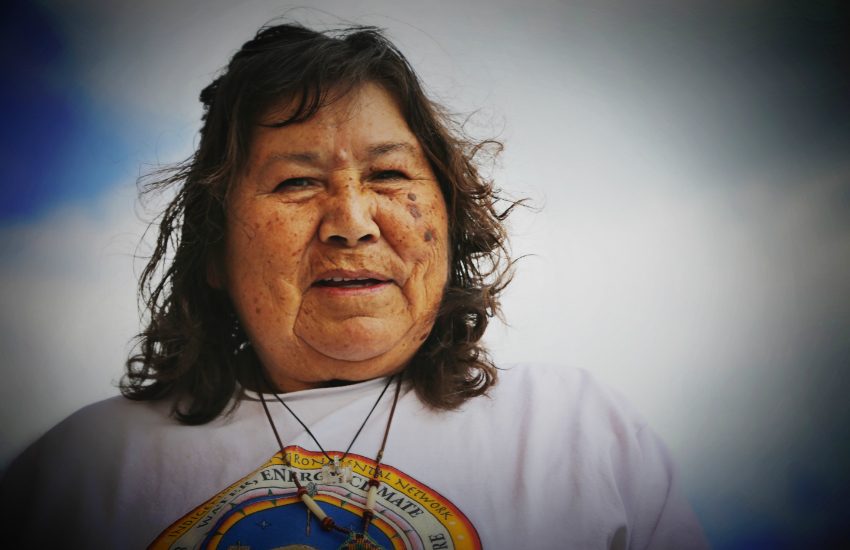KJIPUKTUK (Halifax) – The four-day Mi’kma’ki Water Symposium will include speakers from across Mi’kmaki, who will share their knowledge about the many issues that are impacting our Mother Earth and water and the protectors of the water.
The event, held at the Millbrook First Nation, near Truro, starts this Sunday October 9th with Anishinaabe Grandmother Josephine Mandamin, Mother Earth Water Walker from Sault Ste. Marie, Ontario, who will share her Water Journey and teachings of the Sacredness of Water.
“We have to educate our own people as well as everybody else on these issues,” says Dorene Bernard, one of the organizers of the grassroots event.

“We need to connect with the water in ways that you probably don’t really understand unless you are without your water, like we were for months, just a couple of years ago, in Indian Brook. Or like the people of Potlotek right now, for that matter. You take for granted that there will always be clean tap water,” says Bernard.
Also about building relationships
There is more to the symposium though, Bernard suggests. The event is also about building relationships.
“Part of my reconciliation as a survivor of the Shubenacadie Residential School is to build relationships, with everybody really, and show people who we are, and change and decolonize their minds about what they were taught about our history.”
“We make a lot of friendships through this process, and educate people about our shared history and about consultation and treaty rights. That a part of it as well, and water seems to be the common denominator.”
We have to do this
Finally, the symposium is also about allowing Mi’kmaw women to resume the positions they have traditionally held, says Bernard.
“In our cultural and spiritual roles we bear responsibility as women, this is what we must do. Through history women have been minimized, more so for native women. As we gain those things back, healing from residential schools and colonialism, we are teaching our children to love our water and Mother Earth. These things have been trampled on. We have to do this.”
Giving thanks and sharing knowledge
There is a certain logic to the way the four-day event unfolds, Bernard explains.
The first day, centered around the presence of Josephine Mandamin, will focus on teachings about the sacredness of water.
Then on Monday there will be a Thanksgiving Day feast at the Shubenacadie River Treaty Truck House, where Alton Gas intends to release brine in the ecologically sensitive river. Josephine Mandamin and Sipekne’katik elder Isabelle Knockwood will conduct a Sacred Water ceremony.
“That day is to give thanks for all that Mother Earth provides for us, and to remind us how we are responsible to take care of her for each generation,” Bernard says. And yes, there is a plan B in case it rains….
On Tuesday and Wednesday the focus shifts to knowledge sharing about the issues affecting water, and what people have been doing to protect it. People will talk about Alton Gas, risks posed by turbines in the Bay of Fundy, the water crisis in Potlotek First Nation, and Ingrid Waldron will talk about environmental racism. The agenda is jam-packed, and there is much more.
“People will go home with some concrete ideas about what we can do, as Nova Scotians and as Mi’kmaq,” says Bernard.
Register here. Registration is FREE, but donations and volunteers are greatly appreciated, as this is a grassroots initiative hosted by grandmothers. Check out the agenda and further details on the Facebook event page.



